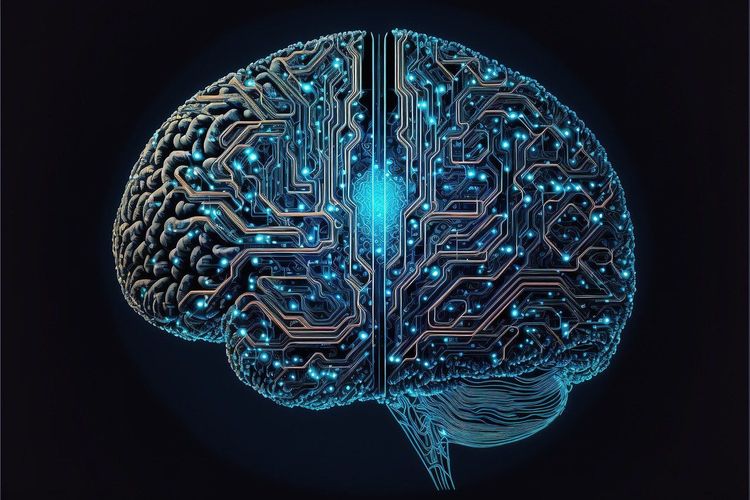This morning at Scaleway’s ai-PULSE conference, French billionaire and Iliad CEO Xavier Niel provided key updates about his vision for an AI research lab set to launch in Paris.
Named Kyutai, this new nonprofit initiative will focus on artificial general intelligence, collaborating with PhD students, postdocs, and researchers on both academic papers and open-source projects. When Iliad first announced the lab, Niel committed €100 million (approximately $109 million at the current exchange rate) to kickstart the venture.
“Thanks to some incredible allies who are joining me today, we are now nearing €300 million in funding for this initiative,” Niel stated during the conference. Among his notable partners is another French billionaire, Rodolphe Saadé, CEO of shipping giant CMA CGM, who is also contributing €100 million. Other contributors include foundations like Eric Schmidt’s and a handful of anonymous donors.
This initial funding is just the beginning, as Kyutai welcomes additional donations. “With so many journalists present, we hope the project will attract further investor interest,” Saadé remarked at a subsequent press conference.
To build foundational models, Kyutai will require substantial computing power. Fortunately, Scaleway, a division of Iliad, has recently procured 1,000 Nvidia H100 GPUs—top-tier technology for model training and inference. This cutting-edge hardware will be available to Kyutai at cost.
Kyutai has commenced recruiting its core scientific team, featuring six prominent individuals who shared their expertise and aspirations for the facility: Patrick Perez, Edouard Grave, Hervé Jegou, Laurent Mazaré, Neil Zeghidour, and Alexandre Defossez, all of whom have significant experience at organizations like Meta's AI research team, FAIR, and Google’s DeepMind.
Leading the research lab will be Patrick Perez, a former Valeo employee. Additionally, Kyutai has appointed a panel of esteemed scientific advisors, including renowned AI researchers like Yejin Choi, Yann LeCun, and Bernhard Schölkopf, who will review work periodically to provide constructive feedback.
One of Kyutai’s key advantages in attracting researchers is its commitment to publishing research papers. “Unfortunately, major tech companies are increasingly resistant to scientific publications. Publishing not only benefits researchers’ careers but also advances the broader scientific community,” Niel emphasized during the press conference.
Kyutai is not the first open AI research lab; OpenAI originally launched as a nonprofit, but its structure shifted dramatically in 2019 under Sam Altman’s leadership, which included investment from Microsoft.
Other firms are also diving into open-source foundational models, like Meta’s Llama and Mistral AI. Kyutai plans to release its models as open-source, but the researchers label their approach as "open science," promising to share not just the models but also the training source code and data behind their development.
“Our aim isn't to expedite our work like Mistral; we prioritize a scientific approach that encompasses understanding and robust methodologies,” Defossez shared at the press conference, noting that Kyutai expects to release its first outputs within a year.
Moreover, Mazaré remarked on the success of Mistral AI’s initial open-source model, highlighting the community's engagement in fine-tuning and discovering new applications based on the Mistral 7B model.
It will be intriguing to observe whether a research lab can outperform private enterprises in releasing foundational models and how businesses may leverage Kyutai's innovations for commercial purposes.
“I firmly believe in open-source, and we should establish it as a quintessential French asset,” stated French President Emmanuel Macron in a prerecorded message during the conference.
Macron also took the moment to clarify and advocate for France’s stance on the European AI Act, asserting that regulation should focus on use cases rather than on model creators. France has been advocating for a more lenient interpretation of the AI Act during negotiations among European legislative bodies.
“Regulation isn't an obstacle to innovation; quite the opposite. It's not solely about identifying model quality but ensuring that the services available to our citizens are safe and beneficial for our democracy and economic players,” Macron commented.
“With discussions on the European regulation for artificial intelligence presently in trilogue, it’s vital that we maintain a balanced approach that encourages innovation while regulating usage rather than the technology itself,” he added.
Niel echoed France’s perspective during the press conference, expressing concern that excessive regulation could hinder AI innovation across Europe. “Currently, we’re focused on fostering innovation rather than imposing regulations, which could erect barriers for new competitors,” he warned.
Looking ahead, Niel optimistically mused that should French AI companies achieve significant success, perceptions could evolve. “I would relish the day we discuss French leadership in AI,” he added.
With AI regulation discussions reaching a pivotal moment in Europe, the focus remains on how to balance innovation with necessary oversight.







